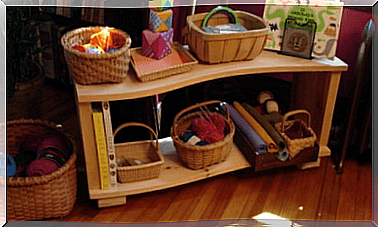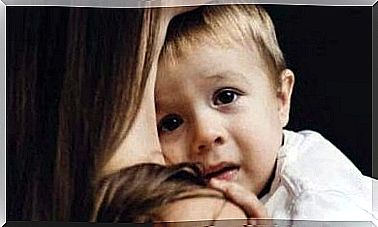How Does The Generation Gap Affect The Family?

However, in order to establish a good bond of any kind, communication is a key element. When we communicate with our children, we may encounter great difficulties. Many of them are due to the generation gap that affects families and which we must reduce.
The bonds between parents and children can be the most enriching or the most destructive we experience in our lives. Fathers and mothers are increasingly making great efforts to become appropriate, positive, and respectful parents.
In adolescence, conflicts and misunderstandings intensify. However, these can start much sooner. What is happening is that the need for independence and “rebellion” among young people is putting us face to face with problems that we may not have noticed before.

If we want to establish trusting and respectful relationships in the family, we need to understand the role of these differences between generations.
What is the generational gap in the family?
The generation gap refers to the small or large gap that exists between one generation and another. This is in terms of values, ideals, beliefs and goals. In families, it manifests itself as the different principles or lifestyles that children have in relation to their parents, grandparents or other adult relatives.
Some of the most obvious and significant examples are the existing differences regarding opinions about and use of the Internet and social networks (the digital divide).
In this regard, it is common for grandchildren to teach their grandparents (and even their parents) how to handle new technologies. However , the gap is about far more than this and provides significant daily problems and frictions.
For example, parents may feel that the values of the current generation are wrong, that their hobbies are inappropriate and, in general, that their way of looking at life is not the right one. It is common to resist change and think that the way we grew up and thought was clearly better.
This, of course, creates a distance between parents and children. But in addition, young people’s communication codes are new and different from those used by other generations. As a result, parents may not be able to understand creating a good dialogue with their children, especially when they are teenagers.
How to bridge the generation gap?

Get to know their world
First of all, you need to be interested in the world around your child and the world they live in. Make sure you know their favorite movies, cartoons or comics. Stay up to date with the social networks that their friends use or that they ask you to use. Learn the words, abbreviations, and communication codes they use in their generation.
Even if you initially feel totally alienated and disoriented, knowing their world will allow you to get to know your child better. You will be able to understand what they mean when they talk to you about something they like or care about and you will be able to share an enriching exchange.
Moreover, from this position you will only be able to judge whether something is appropriate or not, and set reasonable boundaries. Forbidding and rejecting something your child asks for, without really knowing what it entails, will only increase the distance between you.
Respect their generation
Differences between parents and children have always existed. We all tend to believe that what we know is better. However, accept that your children are not you and that their world today is different from the one you grew up in.
Therefore, respect these differences and be open to change. Accompany and advise them with respect for who they are and what they are experiencing, without criticizing, judging or belittling their lifestyle or their generation.
Create healthy communication
Lastly, you should try from childhood to establish a bond built on love, respect and trust for your children. Feeling valued will encourage them to maintain fluent and healthy family communication.
And remember, you can all enrich each other. Each generation has something to contribute, and you can complement each other. Love, respect and communication are the best way to bridge the generation gap in the family.









